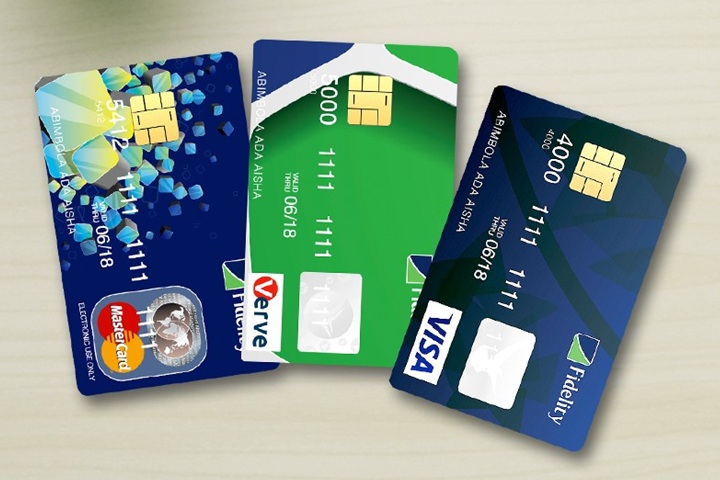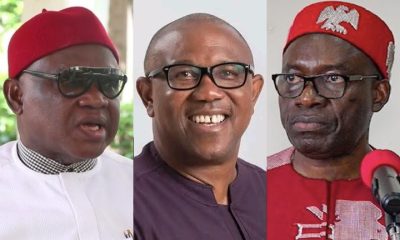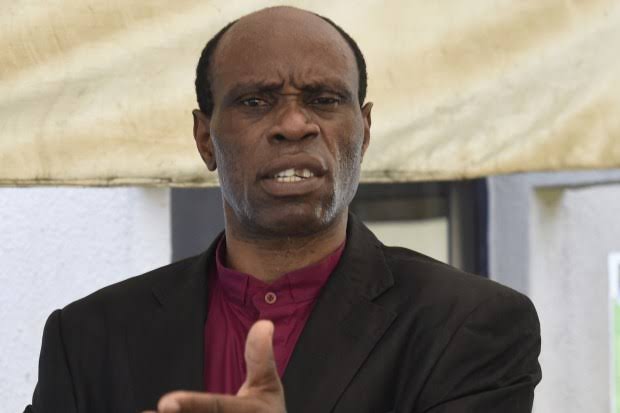Economy
China’s global ambitions to rival World Bank & IMF raises alarm
In 2013, China Beijing proposed setting up the Asian Infrastructure Investment Bank (AIIB) to provide an alternative to the World Bank and the International Monetary Fund – which it regarded as institutions dominated by Western powers – and finance infrastructure projects globally. The bank now has 105 approved members and has approved investments worth $22bn.
While AIIB was tasked by Beijing to finance its Belt and Road Initiative (BRI) – aimed at boosting economic development such as transportation, telecommunications and energy projects along the ancient Silk Road – it has not been the principal lender.
In 2020 the AIIB’s funding commitments on the BRI and other projects totalled just under $10bn. Overall investments funnelled into the BRI were $47bn, according to the International Institute of Green Finance. Funding also comes from China’s state-owned banks and sovereign wealth funds such as the Silk Road Fund.
The BRI now encompasses almost 3,000 projects spanning Asia, Russia, Africa, Europe and the Americas, valued at $3.87 trillion.
Still the AIIB bank has been controversial since its inception with the US refusing to be involved in a project it felt could undermine other global institutions, and Japan also steering clear of membership.
Writing in UK’s Daily Telegraph, Helen Cahill said Britain was encouraged to join by Sir Danny Alexander, who has admitted he was a cheerleader for the decision to become a member.
Sir Alexander declared to a room full of European policymakers and financiers that a Chinese rival to the World Bank offered a “message of hope”.

Sir Danny Alexander
Speaking at an event at the European Investment Bank, he was touting the Asian Infrastructure Investment Bank (AIIB) as a way for Europe and China to cooperate, by investing in building projects globally.
Three years on it seems Sir Danny’s hopes, as vice president and corporate secretary for the AIIB, seem to have not been realised.
In May 2015, under David Cameron and when Sir Danny was chief secretary to the Treasury, George Osborne announced the UK would be the third Western country to join the AIIB. Since then, Britain has committed $3.1bn to the venture for a 2.9pc voting share in the bank.
But as relations between China and the West sour, campaigners are now calling for Whitehall to reassess its relationship with the AIIB.
In a BBC interview in 2019, Sir Alexander said: “Having been very involved in the British decision to join, it was one of the last things that the Government I was part of did. I was one of the champions of that decision.
“To then actually come and be a part of setting it up and making sure it operates in the right way and that the standards are high is, for me, fascinating.”
Sir Danny, who was been contacted for comment, joined the board of AIIB after he left the Government in 2015.
While Britain holds just under 3pc of voting power, China has a 26.6pc share after ploughing $29.8bn into AIIB.
It means Beijing’s voting power is higher than the 15pc held by the US at the World Bank and it comparatively has more control over the appointment of its bank’s president. China also has the ability to veto decisions at the AIIB and can suspend a member – giving the Communist Power control.
But as scrutiny intensifies over China’s alleged human rights abuses in Xinjiang province – accusations Beijing denies – as well as the Asian superpower’s influence over technology and its growing numbers of foreign takeovers, there are concerns over Beijing’s dominance and what that means for national security in countries including the UK and US. Britain recently launched powers to assess takeovers to prevent ‘hostile’ powers undermining national security.
Against that backdrop, Britain’s investment in the AIIB is facing fresh questions.
Johnny Patterson of campaign group Human Rights Watch argues China’s state-owned banks are the more aggressive lenders on the BRI and that Britain is lending credibility to an institution that helps hide such tactics.
“A lot of the most problematic loans on the BRI come from Chinese state-owned banks rather than the AIIB. Some of what the AIIB does is quite bland. They would claim they are helping to improve the quality of loans being made out on the scheme,” he admits.
“But there’s a naivety to that because I would be sceptical of working too closely with the Chinese Communist Party in general. Britain having a major stake in this is questionable given the nature of past funding of BRI projects.
“The AIIB does act as window-dressing for some of the more problematic elements of the work on the Belt and Road. Britain’s involvement in this gives the whole institution a level of legitimacy and makes China seem like a more credible lender than it really is.”
A Treasury spokesman said: “The Government works closely with the AIIB and other shareholders to ensure it implements high standards and delivers on UK and G20 priorities.”
The BRI has been regarded by critics as a possible route for China to gain control of assets in foreign countries by lending on infrastructure projects.
Some have described it as a form of Chinese colonialism. In a speech in 2018, China’s President Xi said it was a way to build a “community of common human destiny”. Defence experts have argued the language is a reference to Beijing’s plan to become the dominant world power.
Dr Radomir Tylecote, director of defence and security for democracy at think tank Civitas, warns that the BRI is a lever for China’s “expansionist” foreign policy. He adds that the AIIB isn’t just funding development – it is also financing China’s bid to gain control over foreign powers.
“It would be naïve to think that the purpose of the AIIB is simply development,” he says. “There is a strategic risk that countries that accept loans from China’s BRI-related institutions are unable to pay them in the long term and then, against their intentions, China is able to seize control of important pieces of infrastructure in those countries.”
In December 2017, Sri Lanka was forced to hand over infrastructure to China after taking out a loan with its Exim Bank of China. Unable to repay its debt, state-run Sri Lanka Ports Authority handed a 70pc stake of Hambantota port to China Merchants Port Holdings to create a joint venture.
Hambantota Port Sri Lanka – Xinhua News Agency / eyevine© Provided by The Telegraph Hambantota Port Sri Lanka – Xinhua News Agency / eyevine
In total, Sri Lanka had taken out loans worth Chinese loans $1.3bn to build the strategic port in the Indian Ocean.
Tylecote warns that the AIIB could be a route for similar practices. In a speech in 2019, Sir Danny emphasised the AIIB has “the highest standards of governance, with high quality standards in everything that we do.” The bank did not comment.
Tylecote says: “This is one of a number of institutions that are able to help facilitate the People’s Republic of China’s ownership of infrastructure and assets.
“Institutions like the AIIB have been founded by Beijing and do not exist independently of its grand strategy.
“In general with the BRI we are talking about the increasingly expansionist strategy by China over the last decade or so to acquire foreign infrastructure and related assets.”
He adds: “We need to be able to distinguish between foreign investment in growing companies, and growth sectors, that can be very useful, and just simple asset acquisition.
“There are areas of foreign acquisitions that create risks such as political leadership over those countries where the investment has happened. Any infrastructure that could be used for military purposes is obviously at the very sharp end of that and beyond that energy infrastructure is potentially quite risky as well.”
Economy
Fidelity Bank Resumes International Transactions on Naira Debit Cards

Tier-one Lender, Fidelity Bank Plc., has announced the resumption of international transactions on its Naira Debit Cards.
This recommencement gives customers the freedom to make seamless payments abroad, online, and at ATMs outside the country.
The Divisional Head of eBanking, Fidelity Bank, Ifeoma Onibuje, shed light on the development.
Onibuje said: “We are delighted to inform the public that Fidelity Naira Cards are now enabled for global use.
“This means that our travelling customers can now utilize their Naira Debit cards outside the country to shop, spend and withdraw internationally without hassles.”
“Consequently, our customers can now spend up to $1,000 quarterly for international POS and online transactions; and withdraw up to $500 quarterly on international ATMs.”
The announcement offers Fidelity Bank customers another way to complete international transactions, in addition to the Bank’s existing foreign currency debit and credit cards.
The bank stated that it further reinforces its commitment to delivering solutions that fit seamlessly into customers’ lifestyles.
With Fidelity Bank’s VISA and Mastercard Naira Debit Cards, Nigerians can now enjoy effortless global access.
Beyond payments, Fidelity VISA cardholders, one of the variants of the bank’s card offerings, also enjoy premium travel and lifestyle benefits.
The benefits range from airport lounge and spa access via the Visa Airport Companion App, to fast-track immigration lanes and 20% discounts on SIXT car rentals worldwide.
This move, the bank said, also reflects its commitment to provide secure, convenient, and reliable banking services that empower customers in Nigeria and beyond.
The bank noted that it has deliberately made the process of getting a Fidelity Naira card seamless.
It stressed that customers can easily apply for their Fidelity VISA or Mastercard Naira Debit card via the Fidelity Mobile App or simply visit the nearest Fidelity bank branch to request for one and they can start transacting globally with ease.
Ranked among the best banks in Nigeria, Fidelity Bank Plc is a full-fledged Commercial Deposit Money Bank serving over 9.1 million customers through digital banking channels, its 255 business offices in Nigeria and United Kingdom subsidiary, FidBank UK Limited.
The Bank is the recipient of multiple local and international Awards, including the 2024 Excellence in Digital Transformation & MSME Banking Award by BusinessDay Banks and Financial Institutions (BAFI) Awards; the 2024 Most Innovative Mobile Banking Application award for its Fidelity Mobile App by Global Business Outlook, and the 2024 Most Innovative Investment Banking Service Provider award by Global Brands Magazine.
Additionally, the Bank was recognized as the Best Bank for SMEs in Nigeria by the Euromoney Awards for Excellence and as the Export Financing Bank of the Year by the BusinessDay Banks and Financial Institutions (BAFI) Awards.
Celebrity/Entertainment
How Nigerian TikToker Geh Geh Made ₦45 Million in One Night

A Nigerian TikTok sensation known as “Geh Geh” has stunned the internet after pulling in over $30,000 from a single live session that attracted more than 177,000 viewers.
The young entertainer, who calls his platform the “University of Wisdom and Understanding,” has quickly built a cult following with his raw and unfiltered lectures about women, money, and survival in Nigeria.
During the live broadcast on Thursday, August 21, viewers showered him with virtual gifts that he later calculated to be worth over $30,000.
The milestone instantly pushed him into the spotlight as one of Nigeria’s fastest-rising online personalities.
Reacting in disbelief after the stream, Geh Geh said:
“More than 177,000 people watch my lectures today. Jesus! University of wisdom and understanding, the only university where once you graduate, woman go fear to ask you for money.”
Despite not having a formal education, Geh Geh proudly calls himself “the first illiterate to find a university in the history of Nigeria.” In a video after the viral live, he reminded fans of his humble background:
“I no be graduate too, but by the grace of God, I don find school. I be orphan, but now Nigerians don show me love.”
The TikTok star admitted he was overwhelmed by the generosity of his supporters.
“See gift I made over… more gift when they give me today is worth about $30,000. I no go take this love for granted, because I no really do anything for am.”
His rise has been hailed as proof of how social media is transforming lives in Nigeria. With no degree, no rich background, and no industry connection, Geh Geh has managed to build a fanbase that now calls themselves “students” of his unusual university.
Still, his controversial views on women and relationships continue to spark heated debates. While some dismiss his advice as reckless, others insist his boldness speaks directly to Nigeria’s frustrated youth.
Reflecting on his sudden fame, Geh Geh compared himself to great thinkers:
“If Nigeria be country wey value great people, by now them suppose dey compare people like me with Aristotle, Wole Soyinka, Einstein… but I thank God say people dey see my head and my own difference.”
From an orphan with no prospects to a viral star earning in dollars, Geh Geh’s story has become one of digital empowerment.
His journey shows how platforms like TikTok are creating new forms of fame, money, and influence for Nigerians especially those once written off by society.
Africa
UK Dominates Nigeria’s Q1 2025 Capital Inflows With N5.5tn — NBS

The United Kingdom has once again cemented its position as Nigeria’s leading source of foreign capital, accounting for more than N5.5 trillion in inflows during the first quarter of 2025, according to the latest data from the National Bureau of Statistics (NBS).
Figures from the Capital Importation Report show that capital from the UK rose to $3.68bn (N5.52tn) in Q1 2025, representing 65.26% of Nigeria’s total $5.64bn inflows for the quarter.
This marked a 29.2% rise from the $2.85bn recorded in Q4 2024 and more than double the $1.81bn inflows seen in Q1 2024.
This underscores Britain’s dominance in Nigeria’s external financing profile and highlights the strong bilateral financial ties between both nations.
Breakdown of Q1 2025 Capital Inflows by Country
United Kingdom: $3.68bn (65.26%)
South Africa: $501.29m (8.88%)
Mauritius: $394.51m (6.99%)
United States: $368.92m (6.54%)
United Arab Emirates: $301.72m (5.35%)
Together, these top five countries accounted for over 92% of Nigeria’s capital inflows, reflecting both the concentration of Nigeria’s foreign investments and the risks of over-dependence on limited markets.
Other contributors included:
Cayman Islands: $114.76m (up sharply from $0.64m in Q4 2024)
Belgium: $70.54m
France: $47.33m
Netherlands: $42.68m (down significantly from $425.61m in Q4 2024)
Singapore: $36.79m
Overall, capital importation into Nigeria stood at $5.64bn in Q1 2025, up 10.9% from Q4 2024’s $5.09bn, and a remarkable 67.1% higher than the $3.38bn recorded in Q1 2024.
The NBS noted:
“Capital Importation during the reference period originated largely from the United Kingdom with $3,681.96m, showing 65.26 per cent of the total capital imported.”
A separate survey by Strategy Management Partners (UK) reveals that British companies are increasingly targeting Africa as a strategic growth frontier.
50% of UK firms with annual turnover above £20m are already operational in Africa and planning expansions.
Another 28% of executives said they are interested but remain cautious about entry strategies.
Africa’s appeal lies in its resource wealth and demographic potential:
30% of the world’s mineral reserves
8% of natural gas reserves
12% of oil reserves
65% of the world’s arable land
Projected to host 25% of the global workforce by 2035
Seven key sectors remain magnets for foreign capital inflows into Nigeria and Africa at large:
1. Technology
2. Oil & Gas
3. Power and Renewable Energy
4. Agriculture
5. Manufacturing
6. Infrastructure
7. Strategic Minerals
Analysts warn that while Nigeria’s reliance on UK-driven inflows reflects strong global confidence, the concentration of sources exposes the economy to external shocks if investor sentiment shifts in these countries.
Diversification of investment partnerships particularly within Asi
a, the Americas, and intra-African trade will be crucial to ensuring long-term resilience in capital inflows.
Africa
U.S. Govt Reacts to Nigerian Minimum Wage

The United States government has said that Nigeria’s new N70,000 minimum wage has lost real value due to the sharp fall of the naira, leaving millions of workers trapped in poverty.
According to the 2024 Country Reports on Human Rights Practices, released by the U.S. Department of State’s Bureau of Democracy, Human Rights, and Labour, the wage translates to just $47.90 per month.
The report noted that currency devaluation and weak enforcement have undermined the wage increase.
The report also revealed that many states are yet to implement the new wage law. Several governors cited financial challenges as the main excuse.
Even where the law exists, compliance remains poor because of limited labor inspectors and weak oversight from authorities.
Wage Devaluation and Exclusion
The report highlighted that firms with fewer than 25 workers are excluded from the minimum wage law, leaving millions of employees without protection.
This also explained that about 70 to 80 percent of Nigeria’s workforce operates in the informal sector, where wage and labor rights are almost never enforced.
This means a majority of Nigerians continue to earn far below the national benchmark, despite the government’s approval of N70,000 as the new minimum wage.
The U.S. report stressed that the naira’s sharp decline, trading above N1,500 to the dollar, had worsened the wage erosion. This has left workers unable to afford basic needs, pushing many deeper into poverty.
Human Rights and Labor Challenges
The document pointed out that weak enforcement of labor laws contributes to worsening poverty levels in the country.
Workers in the informal sector, such as street vendors, artisans, and small traders, rarely benefit from labor protections.
The report also noted that Nigeria’s minimum wage is rarely sufficient to cover basic food, housing, and transport needs.
This has further exposed structural gaps in the government’s approach to economic reforms and poverty reduction.
Governors Push Investment Platform
Meanwhile, the Nigeria Governors’ Forum (NGF) has launched a new investment initiative called NGF Investopedia.
The platform seeks to attract capital flows into bankable projects across all 36 states, with the goal of tackling Nigeria’s annual $100 billion infrastructure financing deficit.
The launch event in Abuja gathered governors, international partners, and investors. The forum described the platform as a long-term strategy to unlock growth opportunities across states and strengthen Nigeria’s subnational economies.
NGF Chairman and Kwara State Governor, Abdulrahman AbdulRazaq, said Nigeria must urgently leverage its human and natural resources to address poverty and joblessness.
“Here is Africa’s largest economy, endowed with abundant human and natural resources,” he said, stressing that state governments must play a bigger role in attracting investments and supporting local industries.
A Widening Gap
The contrast between the U.S. report on wage decline and the governors’ push for investment highlights Nigeria’s economic paradox.
While authorities promote foreign capital inflow, millions of workers continue to survive on wages that have lost most of their value.
With inflation rising, food prices soaring, and the naira weakening, the gap between earnings and cost of living keeps widening.
Unless enforcement improves and the informal sector is integrated into wage protections, the N70,000 benchmark may remain symbolic rather than effective.
Economy
Global Card: Fidelity Bank Hits Milestone As Fidelity Naira Card Accepted Globally

Fidelity Bank may have hit another milestone the Fidelity Naira Card is now accepted globally.
This was disclosed in a message sent to Diaspora Digital Media (DDM) via email on Monday.
According to the statement entitled “Your Fidelity Naira Card Now Works Globally; Shop, Pay and Withdraw with Ease!“, customers can buy favourite global brands online using their Fidelity Naira Card.
The band also stated that they can equally pay at POS terminals abroad and make cash withdrawals at ATMs as they travel.
The message reads:
“We’re excited to let you know that your Fidelity Naira Card is now enabled for global use — so you can shop, spend and withdraw internationally with confidence.
“Here’s what you now enjoy every quarter:
|
Channel |
Transaction Limit |
| ATM Withdrawal abroad | $500 |
| Online/Web & POS Payments | $ 1,000 |
“What does this mean for you?
- Shop your favourite global brands online
- Pay at POS terminals abroad with ease
- Withdraw cash at ATMs when you travel.”
The statement, however, noted that the $1,000 quarterly limit applies to all international transactions combined, including ATM withdrawals, online purchases, and POS payments.
The bank urged customers who may need assistance with setting card limits or activating their cards for global use, to contact the bank’s customers care “Centre Trueserve”, which is available round the clock, whether in Nigeria, or outside the country.
“Your world, your card — spend smart, spend globally with Fidelity,” the message concludes.
-

 Featured4 days ago
Featured4 days agoYour Attacks on Peter Obi Are Petty, Stop It! Chekwas Rebukes Soludo
-

 News3 days ago
News3 days agoTension in Anambra community as senior police officer shoots kinsman dead
Colleagues, others try cover-up; victim's family fights back
-

 News6 days ago
News6 days agoAnambra South Bye-Election: APC Chief Rescues Deputy Gov Caught In Vote Buying From Angry Youths
By Chuks Collins, Awka
-

 News5 days ago
News5 days agoNigerian visa applicants must provide 5-yr social media history — US embassy
-

 Celebrity/Entertainment20 hours ago
Celebrity/Entertainment20 hours agoHow Nigerian TikToker Geh Geh Made ₦45 Million in One Night
-

 Analysis6 days ago
Analysis6 days agoSystemic Sabotage: How APC, INEC Colluded To Undermine Amamgbo’s Senatorial Bid
By Arthur Ezechukwu
-

 News3 days ago
News3 days agoTerrorist Organisation: APC, PDP Members in US, UK, France Risk Deportation
-

 Celebrity/Entertainment5 days ago
Celebrity/Entertainment5 days agoWhy single mothers can’t raise boys into proper men — Jim Iyke
-

 News6 days ago
News6 days agoBREAKING: Troops arrest Nigeria’s most wanted terror kingpin
-

 News2 days ago
News2 days agoVandal electrocuted while vandalizing Aba power infrastructure












